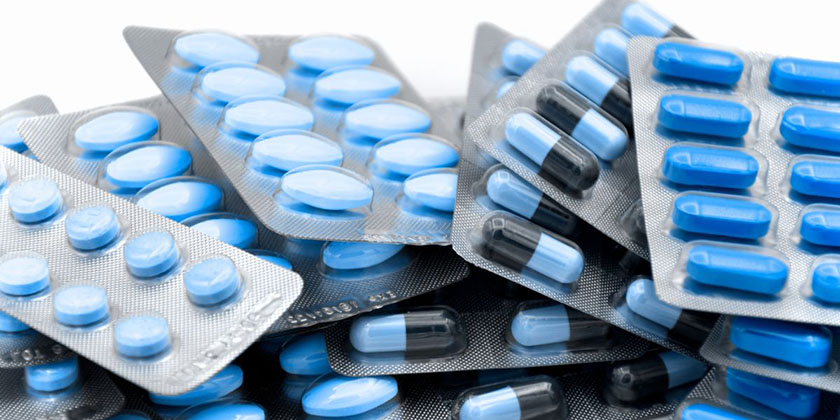Side-effects of medication are common, but what’s overlooked is medication side effects on oral health. Many prescriptions, over-the-counter drugs and supplements can cause oral health issues. Even vitamins and minerals can lead to anything from dry mouth to gum inflammation, alteration in taste, or even abnormal bleeding and color changes.
Dry Mouth and What You Should Do
Dry mouth can be caused by over 400 medications. Dry mouth has negative effects on the body, because a lack of normal flow of saliva can leave you more vulnerable to tooth decay or gum infections. Some examples of medications that can result in dry mouth include decongestants, sedatives, pain medications, antidepressants and antihistamines. Disease-specific prescriptions like high blood pressure medications, such as diuretics, or Parkinson’s disease medications can also cause dry mouth. If your medication causes severe dry mouth, you can consider asking your doctor to swap out your prescription for something else that’s also suitable. If that isn’t possible, here are some ways you can reduce or manage symptoms of dry mouth. You can consider using a humidifier at night, avoiding spicy or salty foods which may cause oral pain, using an artificial saliva product with your doctor’s approval, sucking on sugarless candy to facilitate the production of saliva, or frequently sipping water to improve moisture conditions in your mouth.
Altered Taste and What You Should Do
Some medications can leave a bitter or metallic aftertaste. Others may alter the taste of certain foods you consume. Examples of medications that alter the taste of foods include nicotine skin patches, cardiovascular drugs, and stimulants meant for your central nervous system. If the taste changes are intolerable, consult your doctor for help regarding a change in prescription.
Increased Risk Of Cavities
A large number of medications have some degree of sugar in them, especially medication designed for children. Antacid tablets, many chewable tablets like vitamins, cough drops and antifungal agents contain sugar too. Consuming too much sugar results in cavities. Here’s what you should do to manage sugar intake in medications. When it’s viable, the medications should be taken as tablets, and during mealtimes. Avoid taking your medication directly before bedtime. After taking the medication, brush your teeth or chew sugarless gums. Additionally, you should be going for regular dental checkups to take care of your oral health.
Discolored Gums Or Mouth Sores
When taking prescribed medication, you may develop mouth sores, gum inflammation or discoloration. Examples of drugs that cause this reaction include specific chemotherapy medications, immunosuppressive agents, oral contraceptives and blood pressure medications. In the event of adverse soft tissue reactions, notify your dentist. They will be able to recommend a series of dental care steps to reduce pain and discomfort.
Behavior-Altering Medication and Its Effects On Oral Health
Certain drugs will affect your behavior in a number of ways. Medications can cause fatigue, general lethargy, or impede your memory. When on these medications, take steps so that you’ll remember to observe regular dental care practices. Set an alarm or some other form of reminder to floss and brush your teeth regularly.

